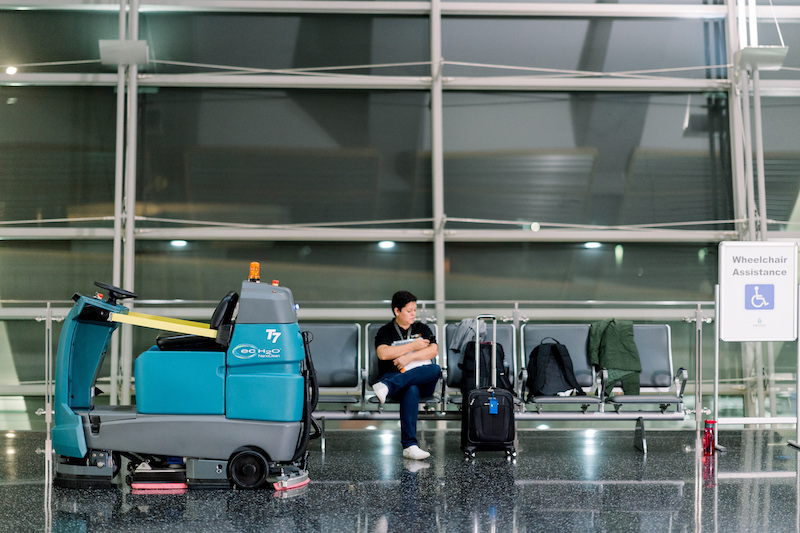
Brain Corp’s European robotic cleaning fleet reaches 500 million square feet covered autonomously in 2021
Brain Corp, which provides an operating system for commercial floor-cleaning robots, says its BrainOS-powered fleet of autonomous mobile robots has hit a new milestone of 500 million square feet covered (46.45 million square meters) autonomously in Europe during 2021.
Coming off the back of significant year-on-year growth, Brain Corp has seen momentum build throughout 2021 with the company recording 226 percent growth in floor area covered autonomously between April and October, 2021 alone.
While increases in robot deployments were seen across all industry sectors, the most significant growth came within retail outlets, shopping malls and logistics facilities.
Michel Sprujit, SVP of international business at Brain Corp, says: “Autonomous robots are filling an increasing number of essential gaps within a supply chain which is struggling to employ and retain workers.
“Across multiple industries, leaders are building more sustainable operations through combining the data-driven sophistication of automated robots with human teams.”
According to the Labour Market Outlook Summer 2021 survey, the proportion of European employers with hard-to-fill vacancies in 2021 stood at 39 percent, up from 26 percent in 2020.
Recruitment difficulties were prevalent in hospitality (51 percent), health and social care (49 percent) and manufacturing (47 percent) with high rates also seen in transport and storage (36 percent) and retail (31 percent).
During the April to October, 2021 period, through the escalating use of BrainOS-powered scrubbers, over 26,000 hours were given back to employees and operations managers, allowing them to focus on customer experience and other higher-value tasks.
While the high number of vacancies across the continent poses an immediate problem, according to an extensive study conducted by the United Nations, an aging population across Europe will ultimately mean 95 million fewer working-age people (between 20 and 64) in 2050 than in 2015, strengthening the case for increased robotic assistance in workplaces in the future.
Creating AI software to power autonomous robots operating in new, varying environments requires advanced software and sensors that ensure high levels of performance and safety, all while prioritizing security and data protection.
Brain Corp says its BrainOS-powered robots align with all applicable privacy regulations, processing data exclusively for navigation and operational support without any additional data sources which could identify a natural person.
